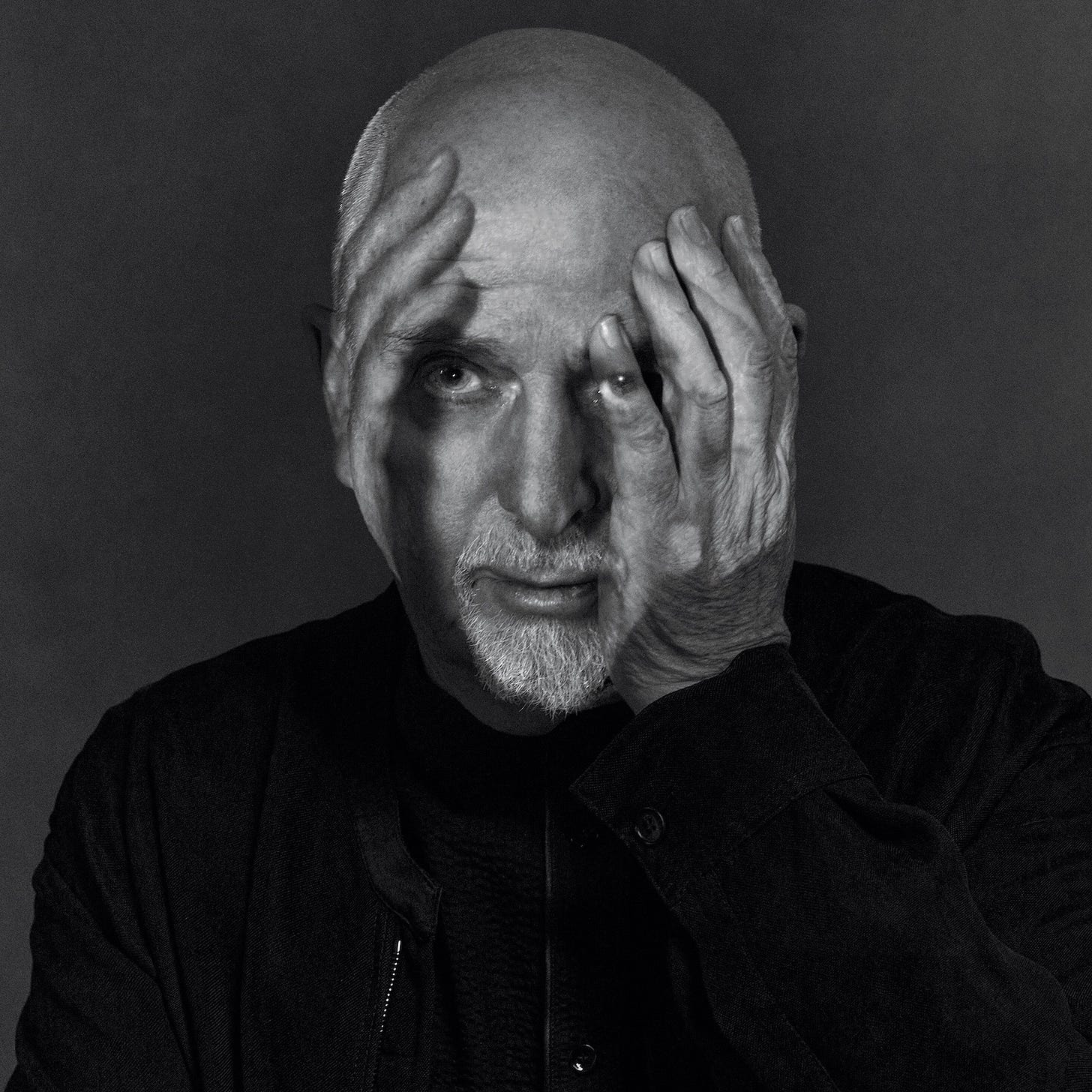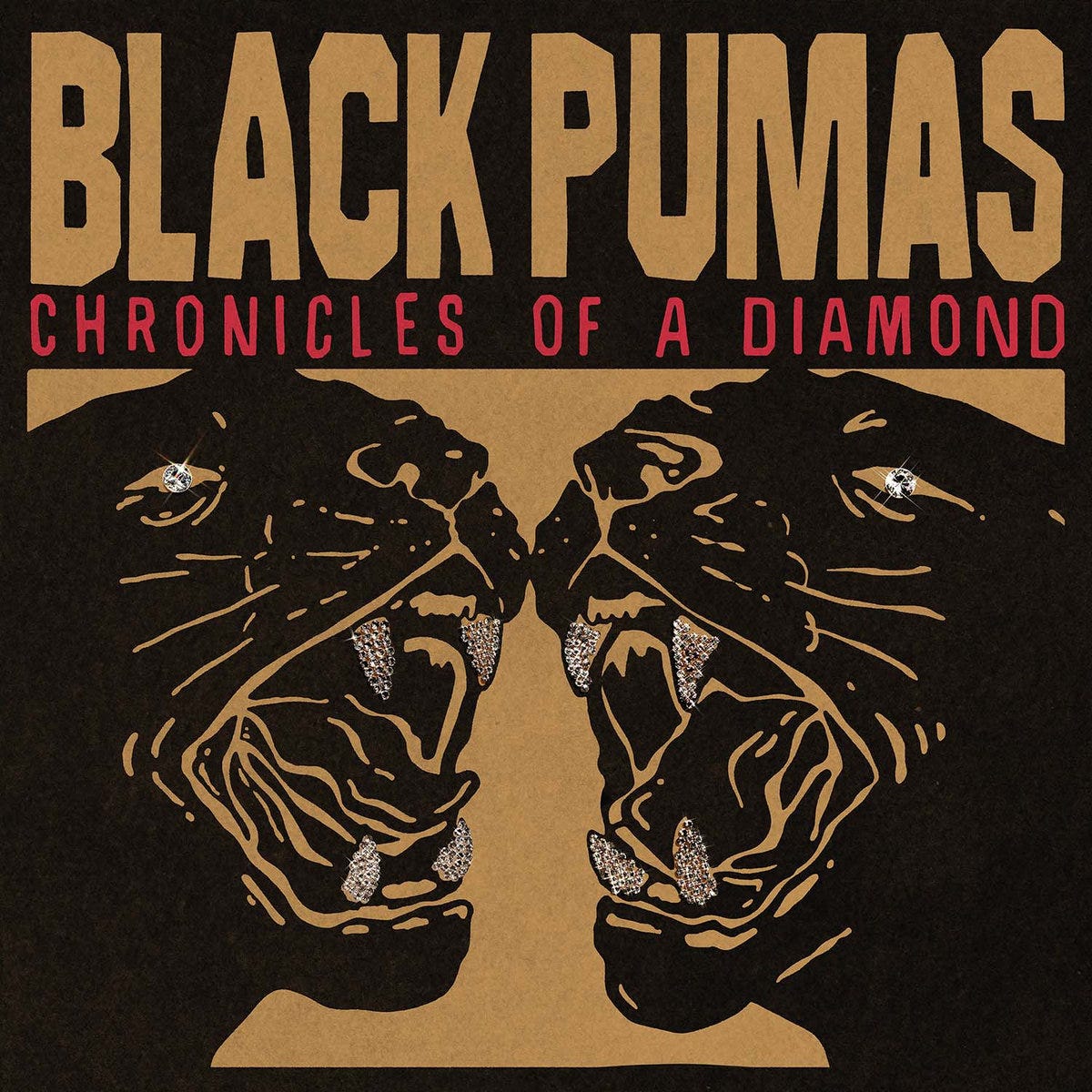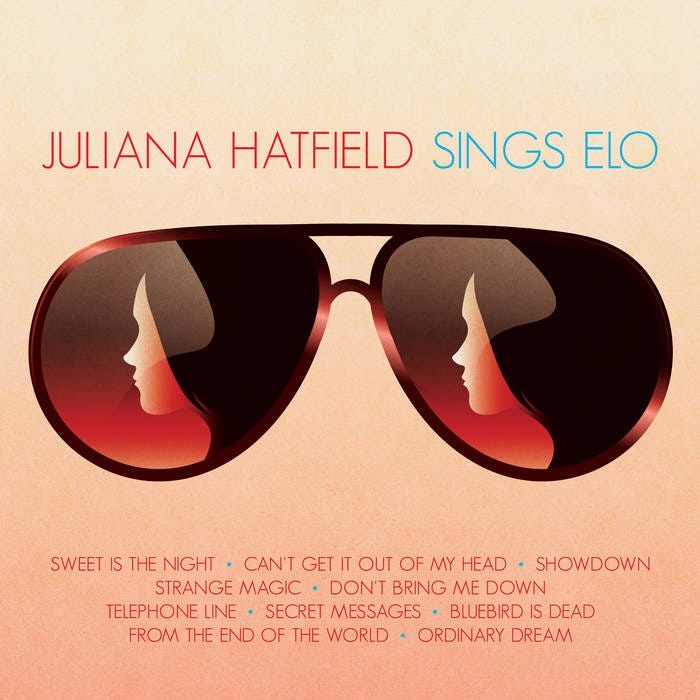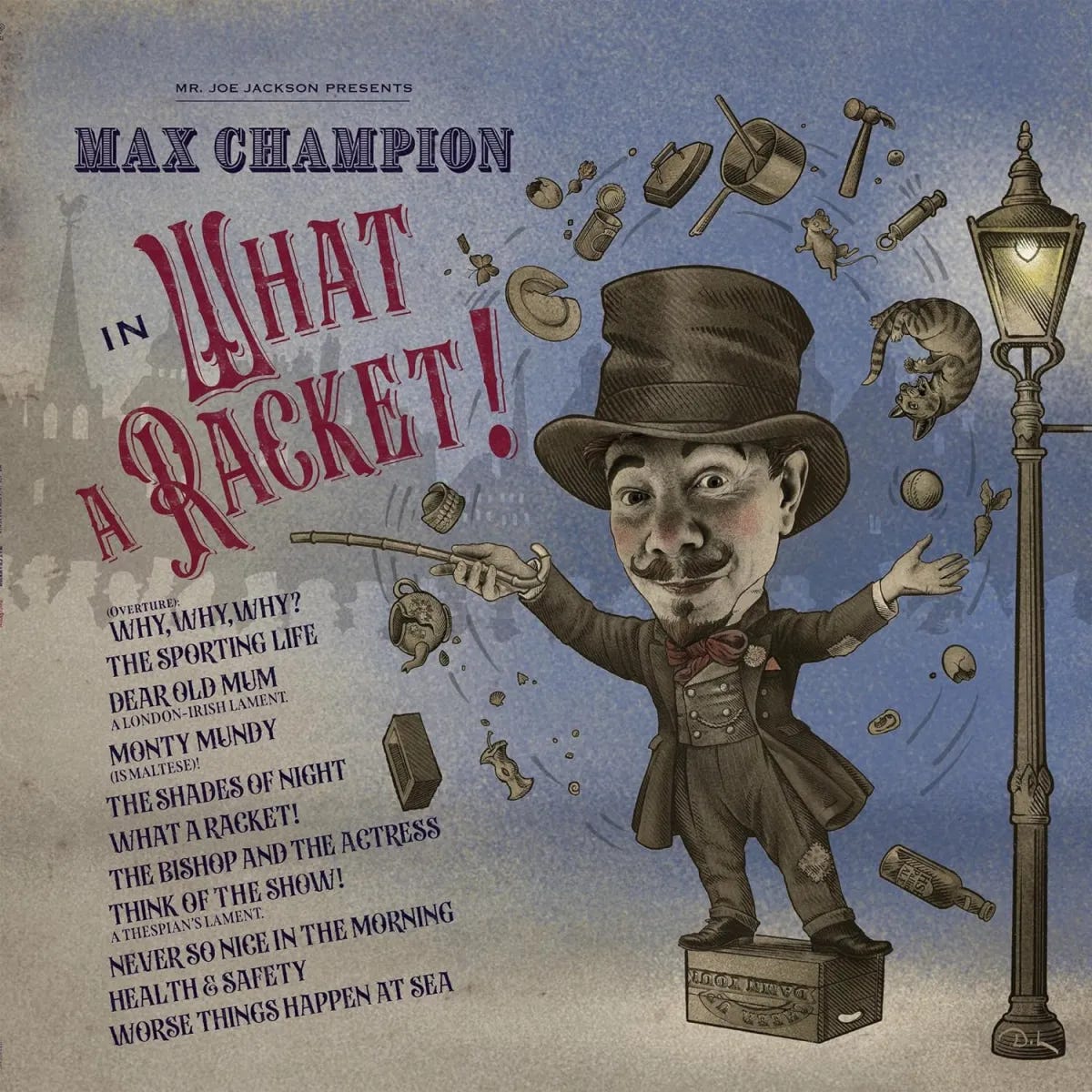Pumping On Your Stereo: The return of Peter Gabriel and André 3000
Plus, Juliana Hatfield Sings ELO, Joe Jackson sings Music Hall, Chris Stapleton can't stop singing, Black Pumas drift into space.
Peter Gabriel—i/o (2023)
Peter Gabriel's decision to slow-walk the release of i/o throughout 2023 by releasing a new track every month of the year sapped the album of some of its momentum and mystery. There was a flurry of interest surrounding its lead single—and opening track—"Panopticom" but by the time he got to the album's title track four months into the year, it was easy to forget that Gabriel was unveiling his first new music in two decades. The deflation of anticipation actually serves i/o well, helping to temper expectations that the album forges new sonic ground. Gabriel spent two decades toiling away on i/o because he's a perfectionist who can't quite come to a definitive decision; i/o is presented with two distinct mixes of its twelve tracks--three, if you count the "In-Side" Dolby Atmos mixes on the BluRay included with the double CD featuring the "Bright-Side" and "Dark-Side" mixes. It's all excessively fussy for an album that's startlingly straightforward: he's spent twenty years puzzling over the best way to articulate his open heart, relying on art-rock anthems and creeping meditations that sound contemplative, not melancholy. It's a shift in attitude, not sound, and it starts to feel deeply resonant over repeated listens--listens that are encouraged due to the multiple mixes. Personally, I can't discern big differences between the "Bright-Side" and "Dark-Side" mixes: both feel oddly reassuring in their quest for answers that unify, not divide.
André 3000—New Blue Sun (2023)
New Blue Sun is also a quest, a dramatic big swing in an era that demands minimal deviations from their major artists. Abandoning hip-hop—he issues an apology in the form of the title of the album's first track, "I Swear, I Really Wanted to Make a 'Rap' Album but This Is Literally the Way the Wind Blew Me This Time"—André 3000 found a middle ground floating between fusion and new age, one entirely reliant on texture and vibe. Any familiarity with either fusion or new age will render the shock of New Blue Sun minimal; the surprise lies not in the form but in the messenger. André 3000's prolonged silence suggests that he was seeking a creative revitalization, eventually discovering his deliverance through flute. New Blue Sun doesn't precisely open a procession of portals to new worlds. Rather, it seeks peace within stillness, as André 3000 and Carlos Niño ponder how to travel without moving. Not quite a challenge--confrontation is not André's bag in 2023—New Blue Sun does require a listener to meet it on its own terms, to find its earnestness endearing, not amateurish. Once you cross that hurdle, these ninety minutes can seem either like an oasis or a mantra.
Black Pumas—Chronicles of a Diamond (2023)
Austin's own Black Pumas finally gets down to the business of delivering a sequel to their 2019 debut, a record that spun off three successive years of Grammy nominations through its deluxe and live variations. Chronicles of a Diamond opens up a new album cycle for the duo of producer/multi-instrumentalist Adrian Quesada and singer Eric Burton but not quite a new era: they're still rooted to the ethereal, cinematic soul that made their first album distinctive. Their gently pulsating psychedelia lacks the ability to surprise a second time and Burton's melodic range starts to seem constricted as his emotional palette—a problem Quesada does not have. Chronicles of a Diamond is another showcase for Quesada's expansive aural imagination, a collection of exquisitely detailed pastiches that lack definition. They seem pretty as they drift and dissipate, leaving not a trace behind.
Juliana Hatfield—Juliana Hatfield Sings ELO (2023)
The third in a series of tributes to her childhood heroes, Juliana Hatfield Sings ELO recalls her salute to Olivia Newton-John more than her ode to the Police. Chalk that up to how Electric Light Orchestra and Olivia Newton-John were both exemplars of high-end 1970s studio craft, an opulence Hatfield pointedly avoids by cutting the arrangements to a minimum. Anchoring her versions with punchy rhythm guitar, Hatfield accentuates Jeff Lynne's tunes with keyboards and plenty of vocal harmonies. It's enough to freshen familiar melodies and it also makes ELO's often (appealingly) overblown catalog seem intimate, even vulnerable.
Chris Stapleton—Higher (2023)
Chris Stapleton not only has good taste, he knows how to convey that he has good taste. Higher is further proof that he can write lean, tuneful melodies, then give them a production they deserve: they celebrate a long country-soul tradition without fetishizing retro affectations. If only he was as nuanced a singer as he was a record maker! No matter the instrumentation or tempo, Stapleton never misses an opportunity to sing from his gut. Not far into Higher, these full-throated expressions of emotion don't sound passionate, they sound cornball.
Neil Young—Before and After (2023)
Another month, another new Neil Young album. This time around, Neil Young takes a journey through the past armed with nothing but an acoustic guitar. Revisiting songs from Buffalo Springfield and his grungy middle age, Young ponders the distance he's run. He arrives at no new destination but the voyage is pleasant as ever.
Joe Jackson—Mr. Joe Jackson Presents Max Champion in 'What a Racket!' (2023)
One of the surprises of the year: the one-time angry young man is revived by play-acting as a music hall bard called Max Champion, writing 12 bawdy, woozy barroom singalongs with a distinctly satirical edge. With its barrelhouse piano, shouted verses and yelled affirmations, whistles and drunken brass, it is indeed a racket but it's also a riot—a high-concept that sheds its air of novelty and winds up as a rollicking good time.
Shane MacGowan: 10 Essential Songs
The Pogues actually have been in casual rotation for me over the last few years but an immersion in their catalog left me dazzled once again by Shane MacGowan's peak, which is as high as any singer/songwriter of his generation. My selections for his 10 Essential Songs for the Los Angeles Times--it's missing such personal favorites as "Bottle of Smoke" and "Fiesta" (I listened to If I Should Fall from Grace with God a LOT as a teen), but I stand by what's here.
Denny Laine RIP
Paul McCartney's constant creative partner of the 1970s often gets relegated to a footnote but let's face facts: very few people could've stepped into John Lennon's shoes in the 1970s. Laine did it seamlessly, even nimbly: he was a crucial reason why Wings actually did sound like a band throughout the 1970s. My obituary for the Los Angeles Times.
R.E.M.—Up (25th Anniversary Edition)
Having not spent much time with Up since the late 1990s, I found my opinions on R.E.M.s first post-Bill Berry album softening considerably when I revisited for this Pitchfork review of its 25th Anniversary Edition. The live set is fun.
Bob Dylan—The Complete Budokan 1978
I'm always up for a critical reappraisal but Dylan's flashy, halting stand at Budokan just sounds awkward to my ears. More details at my Pitchfork review.
Devo—50 Years of De-Evolution
The sequencing of this celebratory comp bugs me—I really don't understand why it runs through the story twice--but the collection nevertheless reaffirms that in addition to being pioneers, Devo were a hell of a rock & roll band. My review for Pitchfork.







